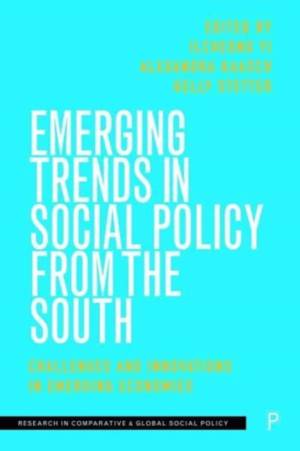
- Retrait gratuit dans votre magasin Club
- 7.000.000 titres dans notre catalogue
- Payer en toute sécurité
- Toujours un magasin près de chez vous
- Retrait gratuit dans votre magasin Club
- 7.000.0000 titres dans notre catalogue
- Payer en toute sécurité
- Toujours un magasin près de chez vous
Emerging Trends in Social Policy from the South
Challenges and Innovations in Emerging Economies
Description
Drawing on international case studies from emerging economies and developing countries including South Africa, India, Egypt, Morocco, Jordan, Tunisia, Indonesia, China and Russia, this book examines the rise, nature and effectiveness of recent developments in social policy in the Global South.
By analysing these new emerging trends, the book aims to understand how they can contribute to meaningful change and whether they could offer alternative solutions to the social, economic and environmental policy challenges facing low-income countries within a contemporary global context.
It pays particular attention to reforms and innovations relating to the objectives of the 2030 Agenda for Sustainable Development, including the move away from a welfare state, towards a 'welfare multitude', in which new actors, such as civil society organisations, play an increasingly important role in social policy.
Spécifications
Parties prenantes
- Editeur:
Contenu
- Nombre de pages :
- 300
- Langue:
- Anglais
- Collection :
Caractéristiques
- EAN:
- 9781447367901
- Date de parution :
- 21-05-24
- Format:
- Livre relié
- Format numérique:
- Ongenaaid / garenloos gebonden
- Dimensions :
- 156 mm x 234 mm
- Poids :
- 598 g






